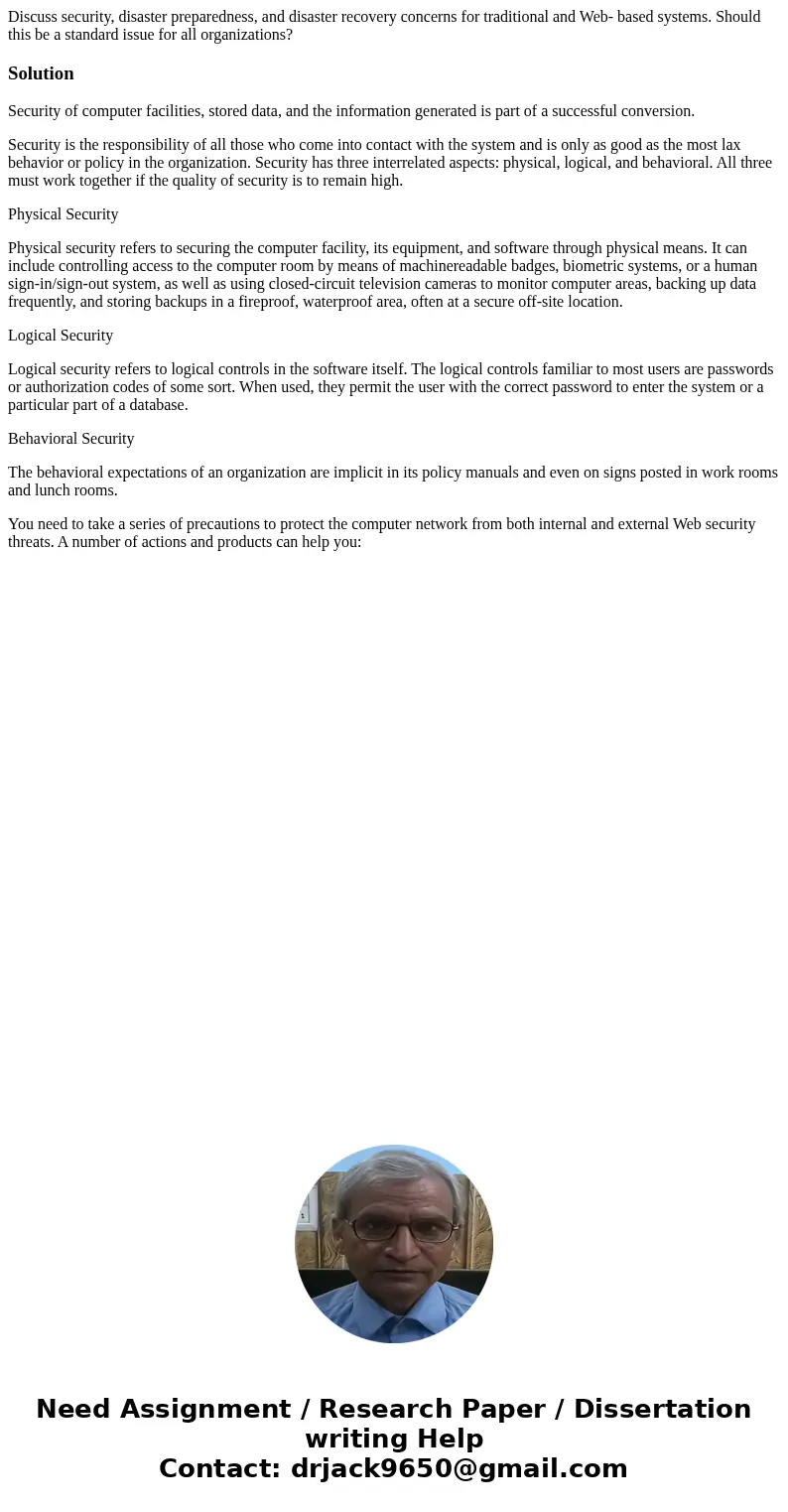Discuss security disaster preparedness and disaster recovery
Discuss security, disaster preparedness, and disaster recovery concerns for traditional and Web- based systems. Should this be a standard issue for all organizations?
Solution
Security of computer facilities, stored data, and the information generated is part of a successful conversion.
Security is the responsibility of all those who come into contact with the system and is only as good as the most lax behavior or policy in the organization. Security has three interrelated aspects: physical, logical, and behavioral. All three must work together if the quality of security is to remain high.
Physical Security
Physical security refers to securing the computer facility, its equipment, and software through physical means. It can include controlling access to the computer room by means of machinereadable badges, biometric systems, or a human sign-in/sign-out system, as well as using closed-circuit television cameras to monitor computer areas, backing up data frequently, and storing backups in a fireproof, waterproof area, often at a secure off-site location.
Logical Security
Logical security refers to logical controls in the software itself. The logical controls familiar to most users are passwords or authorization codes of some sort. When used, they permit the user with the correct password to enter the system or a particular part of a database.
Behavioral Security
The behavioral expectations of an organization are implicit in its policy manuals and even on signs posted in work rooms and lunch rooms.
You need to take a series of precautions to protect the computer network from both internal and external Web security threats. A number of actions and products can help you:

 Homework Sourse
Homework Sourse